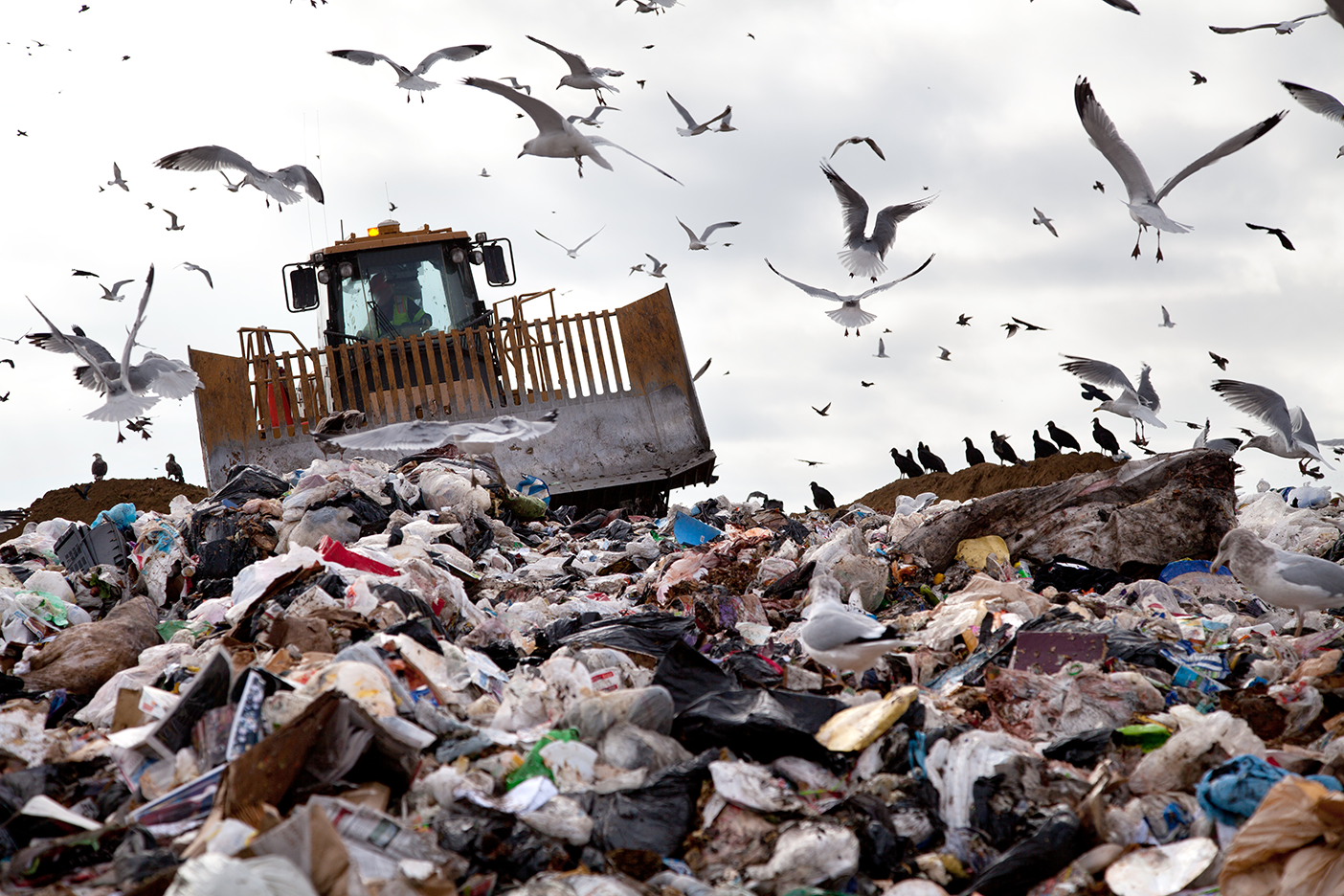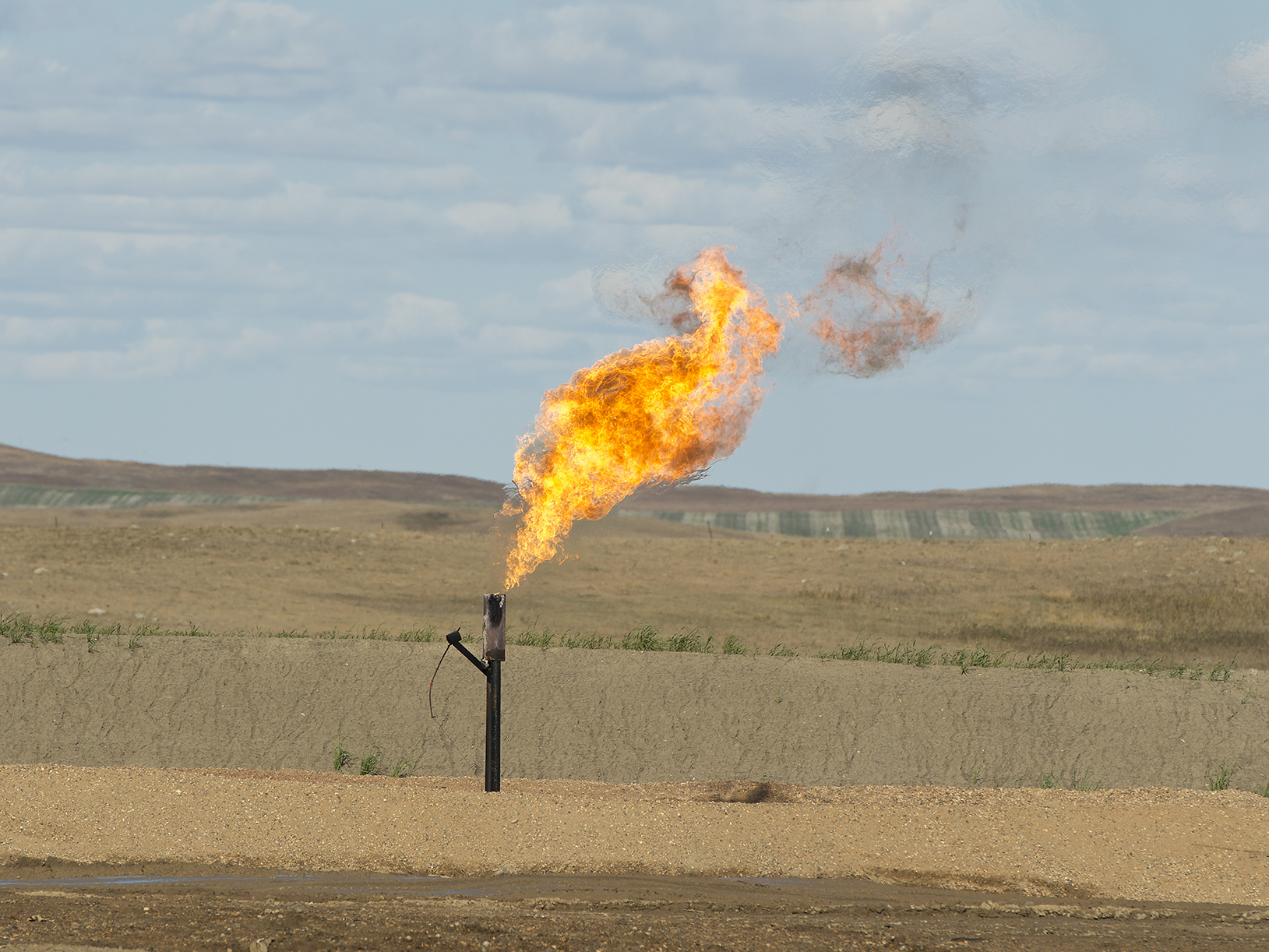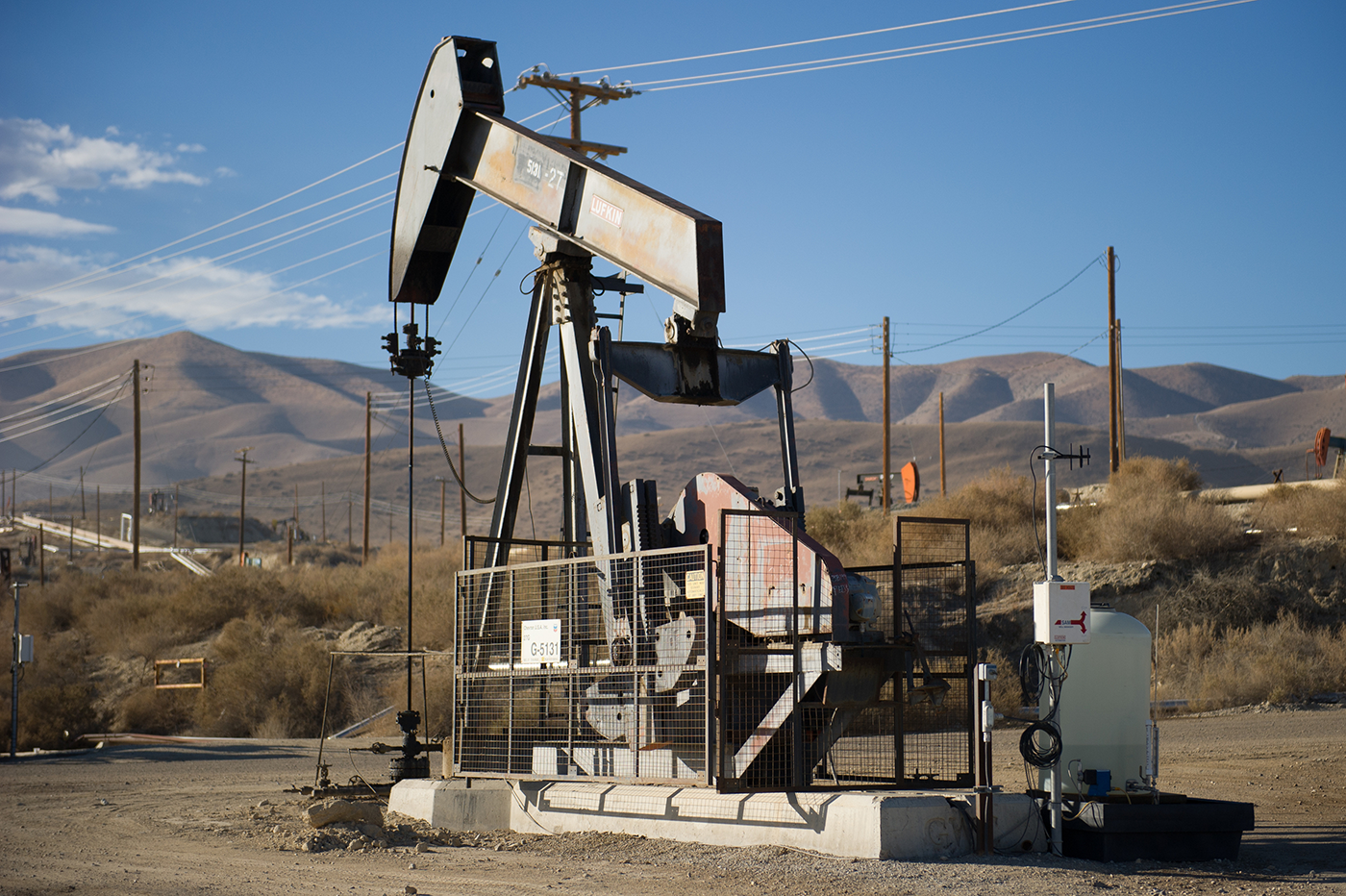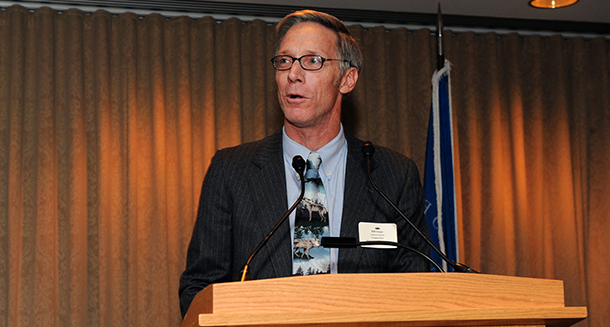EPA Rules Ignore Methane
Air Date: Week of June 13, 2014

Methane is also released from landfills and cattle farms (photo: bigstockphoto.com)
Climate protection advocates have applauded the EPA’s recent power plant regulations, but environmental lawyer Bill Snape tells host Steve Curwood, the new rules don’t deal with methane, and that could be a serious problem for the climate.
Transcript
CURWOOD: From the Jennifer and Ted Stanley Studios in Boston and PRI, this is Living on Earth. I’m Steve Curwood. As the evidence of human-induced climate disruption becomes more stark, many nations are cutting global warming emissions, including the US, which would slash power plant emissions 30 percent by 2030 under a proposed EPA rule. The fracking bonanza makes that goal achievable, as dirty coal-burning plants are replaced by cleaner ones burning natural gas, which is mostly methane. But a recent study from MIT casts doubt on the way we measure methane's global warming power compared with carbon dioxide. Study co-author Jessika Trancik, Assistant Professor of Engineering Systems at MIT, found that what we do now fails to account for the importance of timing.
TRANCIK: When you’re comparing methane to carbon dioxide, which decays much, much more slowly, we have this tricky problem of selecting a time horizon over which we can compare the two gases. Of course we do care about these emissions today, but we may care more about them as the background state of the climate changes.

Methane emissions from natural gas production are much more potent global warming gases then CO2 (photo: bigstockphoto.com)
CURWOOD: Professor Trancik says methane starts out about a hundred times more potent as a heat-trapper than carbon dioxide, and it takes decades to break down to CO2 and water. But as we continue greenhouse emissions, we push the atmosphere closer to a dangerous tipping point, making short-lived gases like methane even more deadly. Professor Trancik proposes an alternative method of measuring the climate impact, weighting methane as thirty times more destructive than CO2 now, but rising to a hundred times more deadly by 2050.
TRANCIK: And this has really important implications for comparing natural gas to, say, coal for electricity or motor gasoline for transportation because what you find is that although natural gas has about half the climate impact of coal-fired electricity today, that advantage is greatly reduced within a couple of decades. So, within a couple of decades, now you have three quarters of the climate impact of coal-fired electricity.
CURWOOD: That's methane study co-author, Jessika Trancik from MIT. Well, the MIT analysis casts serious doubt over whether the US is making the right choice in pushing natural gas as a bridge fuel.
SNAPE: That MIT study is hugely important, and it speaks for itself which is that not only are we not accounting for various types of methane pollution, when we do account for it we're under-accounting for it because we're not realizing how powerful a greenhouse pollutant it is.

The EPA’s new power plant rules will get tough on coal, but leave natural gas essentially unregulated (photo: bigstockphoto.com)
CURWOOD: That's Bill Snape, a Fellow in Environmental Law at American University. Leaks from the natural gas system are huge sources of methane, but the EPA's proposed power plant rules deal only with CO2. And Bill Snape says methane control is one of several climate protection opportunities President Obama is ignoring.
SNAPE: What he did under the Clean Air Act here is understandably and rationally go after the biggest polluters, the power plants. But even if there's no litigation, which I think industry will litigate against it, and even if everything runs totally smoothly, which is not always the practice with our federal government, the earliest that some states would be finalizing their implantation plans under this proposed role could be as late as 2019.
CURWOOD: So what could the President do right now?
SNAPE: The President has authorities under public land laws to curtail and limit fossil fuel pollution from the public lands that all Americans own, and up to date again, he’s had a number of proposals and his cabinet officers have had a number of proposals but no definitive regulation to get that pollution under control has occurred on public lands—that would be something very tangible very discreet that the President could do tomorrow.
CURWOOD: Now, there’s been a lot of talk about how the regulations, the proposed regulations are going to affect the coal industry, but what about natural gas and its core component methane?
SNAPE: Well the natural gas industry from our read is getting off pretty easily. No pollution control that they’ll really have to install that they’re not already using. No control limits on methane and other greenhouse pollutants, so despite the fact this rule really is sound under the Clean Air Act, and I think really does create some good architecture for the future, it doesn't answer the natural gas methane question. And, in fact, not only does it not answer it, I think it is giving a nod and a wink behind the scenes to the natural gas industry. That really is the ugly underbelly of this rule.
CURWOOD: Wait, you’re saying this is a sweetheart deal for the natural gas industry?
SNAPE: It's looking pretty good for them, yes. I think the whole regulatory climate for the natural gas industry right now is very favorable for them. They’re not being regulated on private lands, the few states that have regulations really are just at the beginning stage of process—Colorado is an example. And again, on public lands, no regulation. So, yes, I think the natural gas industry right now under all the regulatory mechanisms including this proposed rule is getting a good deal.
CURWOOD: Many of the emissions reductions that the EPA is calculating here will come about by switching our electricity system from coal over to natural gas. Bill Snape, in your view how much better is natural gas from a climate perspective?
SNAPE: Well, here's the real problem and conundrum with natural gas. When it's burned at the power plant, natural gas is cleaner than coal. But when you look at how natural gas is actually mined or obtained, fracked as the case might be, and how it's then transported and then the methane releases when it's actually burned, you realize that methane, and this is what scientists are finding, is almost as dirty as coal. In fact, some studies have shown that natural gas from cradle to grave is dirtier than coal. So you cannot only look at when the gas is burned, you must look at the whole cradle-to-grave operation of natural gas. And the administration continues not really to do that. They claim they're going to do it at some point but they have not really done it.
CURWOOD: Now, methane, CH4,is much more potent than CO2 perhaps as much as 100 times more potent, some of the studies say. But they’re not in these regulations at all.

Bill Snape (photo: Center for Biological Diversity)
SNAPE: Well, methane is not in this proposed rule because, at least they allege, that these new source performance standards under the Clean Air Act go to the actual plants themselves. And because many of these plants are already coal-burning power plants, what they're doing is creating a performance standard that says how clean those plants need to be, they’re not demanding certain types of fuel, in other words, for these power plants.
CURWOOD: Now, you're an attorney. In your view to what extent can methane be regulated under the Clean Air Act? How's it regarded? Is it considered a pollutant?
SNAPE: Methane is considered a pollutant under the Clean Air Act, and methane can absolutely be regulated even more under the Clean Air Act. The Clean Air Act has a provision called the National Ambient Air Quality Standard, NAAQS for short, and there's nothing stopping the EPA from having an ambient air quality standard relating to methane and making sure that our methane in the atmosphere is at levels that scientists think it is safe. And at this point in time, EPA and the White House have declined that type of ambient air quality standard.
CURWOOD: Why do you think the Obama administration is putting so much stock in natural gas as a way to deal with emissions?
SNAPE: I think it's an easy way out. There's a lot of it. There's a lot of people, or at least enough people making a lot of money, and those people making money are now donating lavishly to both political parties. I think the system is reflecting the power of the natural gas industry. I think on the positive side though you're seeing the President finally use his bully pulpit to talk about climate change in a forceful way. And while he's not doing everything we would like him to do, he’s not moving as fast as we would like them to move, I think the fact that he’s now finally in the arena is a very positive sign. And what's interesting about the current debate and the way it’s all going to play out is that there are a few wackos in Congress that are climate deniers but the real battle now are going to be the mostly Republicans who are the government deniers who are going to say, “Well, yeah, climate’s a problem but we don't want Obama to deal with it. We don't want EPA to deal with it.” So now we’re going to get into the fights of how to deal with climate change and that I think is where the President could be very useful, and I think is already laid out a good template of using existing law to deal with this problem.
CURWOOD: Some analysts worry that once natural gas wells are in the ground and all that infrastructure for gas is in place, it won't be easy to transition away from natural gas in time to meet climate concerns. Your feelings?
SNAPE: I think that's absolutely true. I think the natural gas infrastructure that we're putting in place in literally every corner of the country is very worrisome. We’re now building and proposing to build more export terminals for natural gas that's similarly a disaster. We’re pouring a lot of money and effort to help an industry that really is not good for the general public. I think what you’re hearing the environmental community saying, what I'm saying, is we’ve got to get a handle on that because right now it is out of control. We have no oversight over an industry that has huge economic power and huge power to harm the environment.
CURWOOD: To what extent do you think we would be smarter just to stick with what we have for a current infrastructure which is mostly coal and shrink it down?
SNAPE: Well I think that would be equally disastrous just because coal really is so dirty. I think the real answer, and I think you see kernels of this in the President's role this week, we've got to get the American population using less energy, that actually is one of his four planks. And we need to really ramp up wind and solar and geothermal that is also one of his planks. Then I think the final piece of the puzzle is to get rid of all the fossil fuel subsidies, the $20 billion plus every year that our federal government literally hands out to the oil gas and coal industry. If we could get wind and solar on equal playing field financially, I think we would be on the right track. Ultimately this is not a fight between Republicans and Democrats. It's not a fight between the President and Congress. This is a fight between normal American citizens and the fossil fuel industry that has had its way for over 100 years. And that is really what the Obama administration is trying to do, is trying to reasonably internalize the costs that the fossil fuel industry has put on all of us: BP oil spill in the Gulf of Mexico, the Shell Arctic spills of oil—that's what were trying to prevent here and that's really what is at issue with this power plant rule, and that's why it's so important, that's why it is potentially historic to put this rule in place.
CURWOOD: Bill Snape is a Fellow at the American University School of Law and Legal Counsel for the Center for Biological Diversity. Thanks for joining us today, Bill.
SNAPE: It’s been my pleasure. Thanks for having me.
Links
Living on Earth wants to hear from you!
Living on Earth
62 Calef Highway, Suite 212
Lee, NH 03861
Telephone: 617-287-4121
E-mail: comments@loe.org
Newsletter [Click here]
Donate to Living on Earth!
Living on Earth is an independent media program and relies entirely on contributions from listeners and institutions supporting public service. Please donate now to preserve an independent environmental voice.
NewsletterLiving on Earth offers a weekly delivery of the show's rundown to your mailbox. Sign up for our newsletter today!
 Sailors For The Sea: Be the change you want to sea.
Sailors For The Sea: Be the change you want to sea.
 The Grantham Foundation for the Protection of the Environment: Committed to protecting and improving the health of the global environment.
The Grantham Foundation for the Protection of the Environment: Committed to protecting and improving the health of the global environment.
 Contribute to Living on Earth and receive, as our gift to you, an archival print of one of Mark Seth Lender's extraordinary wildlife photographs. Follow the link to see Mark's current collection of photographs.
Contribute to Living on Earth and receive, as our gift to you, an archival print of one of Mark Seth Lender's extraordinary wildlife photographs. Follow the link to see Mark's current collection of photographs.
 Buy a signed copy of Mark Seth Lender's book Smeagull the Seagull & support Living on Earth
Buy a signed copy of Mark Seth Lender's book Smeagull the Seagull & support Living on Earth

